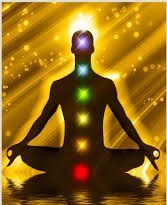
Self-realization! The sight of one’s own self with respect to everything else is a very hard thing to achieve. It is not entirely possible with literally ‘everything’ (such as the universe) but it is somewhat applicable to the society one lives in. Individualistically, it offers a sense of belonging but externally, it gives anything its relative position in the broad spectrum of things. If society were a functional machine, then this ‘self-realization’ would be the ideal lubricant.
People sometimes mistakenly term ‘self-realization’ for an idealistic sense of enlightenment or nirvana. Whereas it is nothing more than the average family man living every ounce of his life for his family’s needs, or the artist saturating meaning into his work. Both know what they are doing and why so. The anticipating reader should not expect an in-depth turn towards purposefulness or self-fulfilment. As this article discusses the primary consequence of the absence of this purely personal phenomenon.
With respect to this, I have discussed two aspects. If a person has all his primal and social needs fulfilled, he or she then strives to invest his/her existence into something. One can invest in a huge number of unimaginably diverse ways: emotions, motivation, creativity, physical rigour, intelligence etc. Here is where self-realization is important, it is not limited to any age or gender. A kid wanting to make his parents proud has a libidinal drive equal to that of a creative perfectionist. However, the problem here is the direction towards which the drive must be directed to.
Who, why and how should it be decided? Which one is right or wrong? This is where self-realization provides the most optimal answer based on one’s predicament. Now, the problem with the absence of this is that one is prone to following a false ideal. Teenagers tend to follow whatever their peers claim to be normal. However, it is not just their peers; digital and print mediums, and trends, all survive on this. They follow them for a smooth acceptance into society.
Here is where the fault lies, they did not ‘choose’ to follow, but rather were forced to due to external factors. The person stepping out of line gets the boot. The wrong investment leads to empty and sad dead ends, and people who cannot realize the consequence of their own dishonesty, make irrational decisions. All that is needed for these types of people is to realize what their self actually wants. A person must be honest to himself about his likes and dislikes and not depend upon external dictation of labels. These external labels, with respect to their outward appearance, usually have juxtaposed intentions.
The second aspect is that of people who are deprived of primal, social and economic needs. These sets of people don’t even get to direct their drives by their choice but instead have them narrowed towards a specific target or intention (usually negative). Here, the tension on the individual builds up and rises to a slippery crux where it can either shift to a positive plane (self-realization; such as a poor kid dedicated to academic studies) or negative plane (irrational decisions; strongly blaming oneself or someone in particular). This type of individual tends to believe he is stuck, whereas he is actually in a process of personal evolution. This process is externally imposed over which the individual has little or no control.
The easiest way to bear this process, for the time being, is to alter one’s lens if one cannot alter the situation. If they can alter the situation in a rational way, they must. However, if they can’t, they need to change their perception of the situation in the most positive way possible, and never compare it to external perceptions (this is very stupidly dangerous). For e.g., if a woman is beaten up by her husband on a daily basis, she must comprehend the situation on a personal level, instead of adopting an external perception of taking the husband as the antagonist.
When an individual analyzes things in such a way, they realize that sometimes they themselves are at fault. Or if they aren’t, they don’t initiate possible solutions because of trivial reasons. However, if they fail to achieve this self-realization and dishonestly take themselves to be the victim, or believe other people to be the causes, they take crude baseless actions.
Self-realization is not some ‘higher state’ to be achieved, it is an honest approach to our own desires, thoughts, and intentions. Suicide, for the majority of its reasons, is because of the absence of this. With the exception of existential suicide, all other reasons for believing suicide to be an ‘escape’ is due to not being able to perceive things properly, or perceiving them incorrectly. Life is absurd as it is, so dualistically, shouldn’t deciphering it be just as much beautiful?

Ali Azam is a student of engineering at the AKHSS, Gilgit. His passion is writing essays on literature and philosophy.

The High Asia Herald is a member of High Asia Media Group — a window to High Asia and Central Asia

